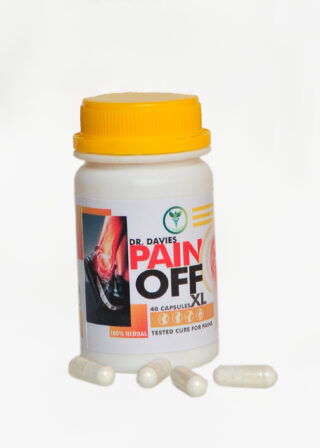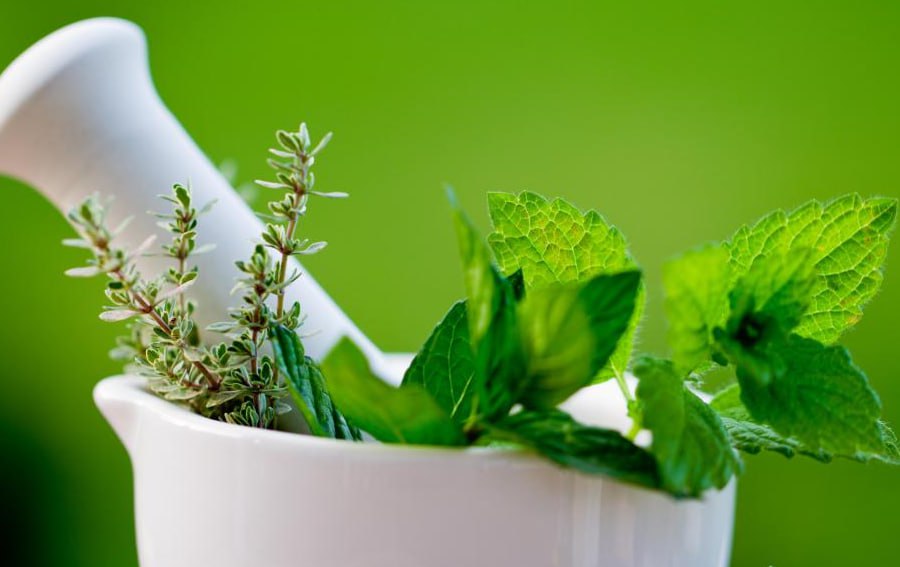1 Does cold cause arthritis?
There is a common belief that cold weather can cause arthritis or worsen its symptoms. However, scientific research has not been able to establish a clear causal link between cold weather and the development of arthritis. Arthritis refers to a group of conditions characterized by inflammation of the joints, such as osteoarthritis and rheumatoid arthritis.
While many people with arthritis report increased joint pain and stiffness during colder months, the exact reasons for this association are not fully understood. Some theories suggest that changes in barometric pressure, which often occur during weather changes, may affect joint tissues. Additionally, cold weather may lead to reduced physical activity or changes in blood circulation, which can contribute to joint discomfort.
It’s important to note that not everyone with arthritis experiences worsened symptoms in cold weather, and there are various factors that can influence the severity of symptoms, such as overall health, age, and disease progression. Managing arthritis typically involves a combination of medication, physical therapy, exercise, and lifestyle modifications, regardless of the weather.
2.Which natural remedy can I use to cure arthritis or alleviate the pain?
In the field of orthodox medicine, it is believed that there’s no known cure for arthritis, however, there are several natural remedies and lifestyle changes that can help alleviate pain, reduce inflammation, and improve joint mobility. It’s important to note that the effectiveness of these remedies may vary from person to person, and it’s always a good idea to consult with a professional before starting any new treatment. Here are some natural remedies that have been helpful in this respect:
i. Exercise: Regular physical activity can help strengthen the muscles around the joints, improve flexibility, and reduce pain. Low-impact exercises such as swimming, cycling, and walking are often recommended for people with arthritis.
ii. Weight management: Maintaining a healthy weight can help reduce stress on the joints, particularly in weight-bearing joints such as the knees and hips. Losing excess weight can help alleviate pain and slow down the progression of arthritis.
iii. Hot and cold therapy: Applying heat to the affected joints using heating pads, warm towels, or hot packs can help relax muscles and reduce pain. Cold therapy, such as ice packs or cold compresses, can help reduce inflammation and swelling. Alternate between hot and cold treatments for best results.
iv. Herbal remedies: Some herbs and supplements have shown potential in reducing arthritis symptoms. Examples include turmeric, ginger, green tea, and some fish oil. However, it’s important to note that blood type specifications play an important role in the selection of herbs and food to alleviate arthritis. For instance, Cucumber may promote alleviation of arthritis in blood group A but may worsen it in blood group O.
That’s why we took time to take all of these into consideration in the formulation of our PainOff XL Capsule.
v. Diet modifications: Certain foods may have anti-inflammatory properties and can help reduce arthritis symptoms. A diet rich in fruits, vegetables, whole grains, lean proteins, and healthy fats such as omega-3 fatty acids may be beneficial. Some people with arthritis also find that avoiding or reducing consumption of certain foods, such as processed foods, red meat, and foods high in sugar, can help alleviate symptoms.
vi. Stress management: Stress can worsen arthritis symptoms. Engaging in relaxation techniques such as deep breathing, or yoga can help reduce stress and promote overall well-being.
3. At what age am I prone to having arthritis?
Arthritis can affect people of all ages, but it is more commonly associated with older individuals. The risk of developing arthritis generally increases with age. The most common type of arthritis, known as osteoarthritis, typically occurs later in life and is often related to the wear and tear on the joints over time.
However, it’s important to note that arthritis can also affect younger individuals. Certain forms of arthritis, such as rheumatoid arthritis, juvenile idiopathic arthritis, and psoriatic arthritis, can develop in children, adolescents, or young adults.
Additionally, factors such as genetics, previous joint injuries, obesity, and certain occupations or activities that place repetitive stress on the joints can also contribute to the development of arthritis at a younger age.
If you have concerns about arthritis or any joint-related symptoms, it’s best to consult with a healthcare professional, especially a Naturopathic Physician who can provide a proper diagnosis and recommend appropriate treatment options.
4. Can arthritis medication cause liver damage?
Yes, certain medications used to treat arthritis, particularly nonsteroidal anti-inflammatory drugs (NSAIDs) and disease-modifying antirheumatic drugs (DMARDs), can potentially affect the liver. This is why it’s important to use these medications under the guidance and supervision of a healthcare professional who can monitor your liver function and adjust your treatment as needed.
NSAIDs, such as ibuprofen and naproxen, are commonly used to relieve pain and reduce inflammation in arthritis. While they are potentially safe when used for short durations, long-term or high-dose use of NSAIDs can increase the risk of liver damage.
Also, DMARDs, such as methotrexate, leflunomide, and sulfasalazine, are prescribed for certain types of inflammatory arthritis. These medications can potentially cause liver function abnormalities. That is why Periodic blood tests are typically performed to monitor liver enzyme levels while taking DMARDs.
In addition to NSAIDs and DMARDs, other medications used to manage arthritis, such as corticosteroids and certain biologic agents, may also carry a risk of liver-related side effects.
If you have concerns about the potential harmful effects of arthritis medications on your liver, it’s important to hearken to the advice of WHO by seeking natural solutions which is known to be safer.
5. I suddenly developed crooked fingers, is that a symptom of Arthritis?
The development of crooked fingers can be associated with certain types of arthritis, particularly inflammatory forms of arthritis like rheumatoid arthritis. In rheumatoid arthritis, the joints can become swollen, inflamed, and progressively damaged over time. This can lead to deformities in the affected joints, including the fingers.
Crooked fingers in rheumatoid arthritis often result from joint erosion and the weakening of ligaments and tendons that support the joints. As the disease progresses, the fingers may deviate sideways or become bent, resulting in a crooked appearance. Other symptoms of rheumatoid arthritis may include joint pain, stiffness, swelling, and fatigue.
It is important to note that crooked fingers are not exclusive to rheumatoid arthritis. Other types of arthritis, such as osteoarthritis or psoriatic arthritis, can also cause joint deformities and crooked fingers, although they may present differently.

WHICH HERBAL MEDICINE IS GOOD FOR INFECTION?
There are several herbal medicines that have antimicrobial properties and can be effective in treating infections. Some of the most commonly used herbs for infections include:
1. Echinacea: This herb which is scientifically known as Echinacea purpurea and commonly called purple coneflower is well-known for its ability to boost the immune system and fight off infections. Echinacea is not native to Nigeria, hence it does not have a widely known local name in Hausa, Yoruba or Igbo languages.
2. Garlic: Garlic, scientifically known as allium sativum has powerful antimicrobial properties and can be effective against a wide range of bacterial and fungal infections. In Nigeria it is called Tafarnuwa in Hausa language. “Alubosa gambari” in Yoruba language, and “Ayuu” or “Ayoyo”
3. Goldenseal: This herb has been used for centuries to treat infections and has strong antimicrobial properties. It is a common herb used to treat infection among the rank of traditional and alternative healthcare givers however Goldenseal is not native to Nigeria, hence it does not have a widely known local name in Hausa, Yoruba, or Igbo languages. It’s scientific namel is Hydrastis canadensis and it is commonly referred to as “yellow puccoon” or “orange root”.
4. Ginger: Ginger has antiviral and antibacterial properties and can be effective against a wide range of infections especially respiratory infections. In Hausa language, ginger is called “Citta”. In Yoruba language, ginger is called “Atale”. In Igbo language, ginger is called “Jinja”.
5. Turmeric: Turmeric otherwise known as the yellow healer has potent antimicrobial properties and can be effective against a wide range of infections. In Hausa language, turmeric is called “Gàngàmáu”. In Yoruba language, turmeric is called “Ata Ile Pupa” or “Atale Pupa”. In Igbo language, turmeric is called “Ohubobochie” or “Nwandumo”.
6. Thyme: Thyme has very strong antimicrobial properties and can be effective against respiratory infections such as Some examples of respiratory infections are:
a. Common cold
b. Influenza (flu)
c. Pneumonia
d. Bronchitis
e. Tuberculosis (TB)
f. Whooping cough (pertussis)
g. Respiratory syncytial virus (RSV) infection
In Hausa language, thyme is called “Kwando”. In Yoruba language, thyme is called “Efinrin”. In Igbo language, thyme is called “Nchuanwu”.
It is important to note that. If you have a serious infection, it is important to seek medical attention from a healthcare professional.
Today’s tips
A glass of water first thing in the morning and last thing at night go a long way to improve your health
This message is from Living Spice Nature Cure Hospital
+2348037128145
www.lsnaturecure.com
Bleeding after every sexual intercourse is not normal and could indicate an underlying medical condition. Here are some possible causes:
1. Vaginal dryness: If the vagina is not properly lubricated during sex, it can cause friction and lead to tears or cuts in the vaginal walls, which can result in bleeding.
2. Infections: Sexually transmitted infections (STIs) such as chlamydia, gonorrhea, herpes, and HPV can cause bleeding after sex. Other infections such as bacterial vaginosis and yeast infections can also cause bleeding.
3. Cervical or uterine polyps: These are noncancerous growths that can develop on the cervix or inside the uterus. They can cause bleeding after sex.
4. Cervical cancer: Bleeding after sex can be an early sign of cervical cancer. Other symptoms may include pelvic pain, abnormal vaginal discharge, and pain during sex. In this case it is important to note that if the bleeding is not accompanied with pain during sex, then cervical cancer may not be the culprit.
5. Endometriosis: This is a condition where the tissue that lines the uterus grows outside the uterus, causing pain and bleeding during sex.
6. Trauma or injury: Rough sex, sexual assault, or other injuries to the vaginal area can cause bleeding.
If you are experiencing bleeding after every sexual intercourse, it’s important to see a healthcare provider for an evaluation. They can perform a physical exam, order tests, and recommend appropriate treatment based on the underlying cause.
At Living Spice Nature Cure Hospital, our approach to this type of condition is as follows:
- Consultation ( Free)
- Bioscan diagnosis ( to detect exact cause of condition )
- Application of herbal/natural remedies
- Use of therapeutic devices to correct physiological defects
- Bioscan recheck ( after treatment) to confirm correction of physiological defects.
Today’s tips
Nature heals
Nature heals perfectly
Be Nature friendlyThis Message is from
Living Spice Nature Cure Hospital
08037128145
lsnaturecure.com
Heart attack is a serious medical emergency that occurs when the flow of blood to the heart is suddenly blocked. If blood flow isn’t restored quickly, the heart muscle can be damaged.
Heart attacks are the leading cause of death in men and women in most countries. But many heart attacks can be prevented.
You can reduce your risk of heart attack by making healthy choices:
-Eat a healthy diet such as naturally occurring foods.
-Get regular exercise such as brisk walking
-Manage your blood pressure and cholesterol levels
-Quit smoking
-Avoid excessive drinking
-See your doctor for regular checkups
If you have any of the risk factors for heart attack, be sure to talk to your doctor about ways to reduce your risk.
If you experience any of the warning signs of a heart attack such as chest pain or shortness of breath, seek medical help without delay.
To prevent a heart attack, one muast take to cognizance the importance of exercises which helps promote blood circulation and in addition one must regularly take herbs that are universally known to improve heart functions such as Garlic and Hawthorn
Today’s tips
Early morning exercise is beneficial, but when the strength of your heart is in doubt, replace jogging with trekking_
This message is from
Living Spice Nature Cure Hospital. Abuja.
08037128145
lsnaturecure.com
It is now a common knowledge that a toilet bowl is one of the areas where snakes can take cover during hot weather.
Like other animals, snakes also seek refuge from the hot sun due to a change in weather. Toilet bowls happen to be one of the most appropriate places for them due to its constantly moist nature, few people have lost their lives as a result of unexpected bites from these poisonous reptiles hiding in the water closet. Unknown to many however, you can easily keep snakes away from your toilets by doing this simple thing.
Ingredients
Lemon grass 175gm
Garlic 50 cloves
Tobacco leaves 17 or Onions 7 bulbs
Neem leaves 100 gm
Sea salt 100gm
Method
– Cut all into pieces
– Mix them together
– Pound them together to enable them mix properly.
– Spread to dry partially over night (don’t dry under sun)
– Soak in hot water (500ml) and leave it to infuse for 3 days.
– After 3 days, sieve and bottle.
Usage
15 ml (one table spoon) inside the toilet bowl after flushing the toilet.
NOTE: This snakes repellant is also available readymade in our store. You may choose to order it if you want it readymade.









